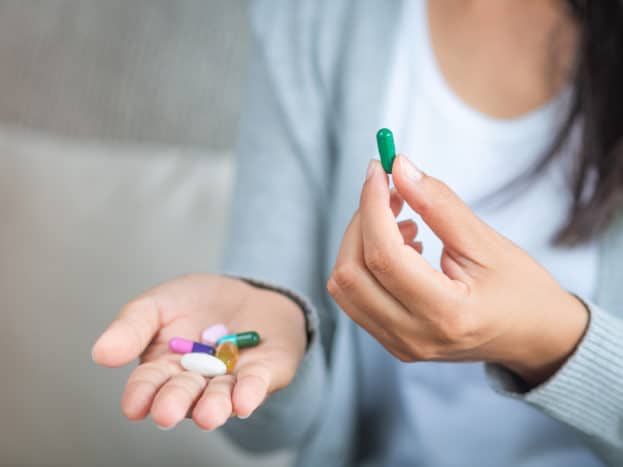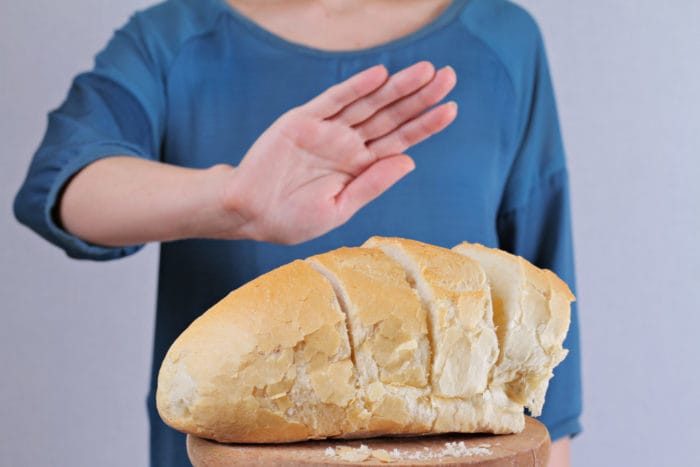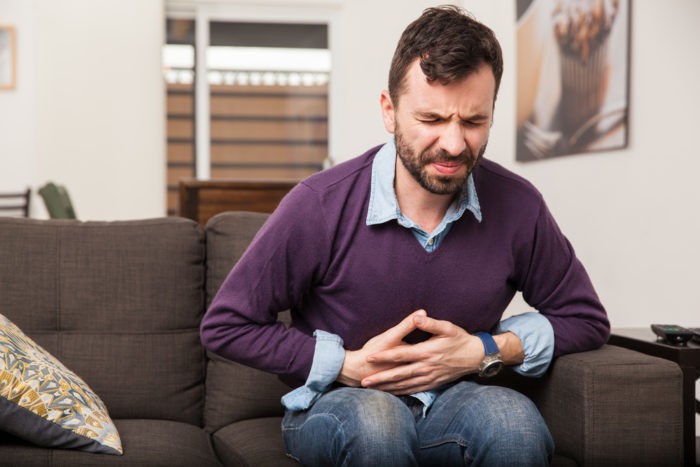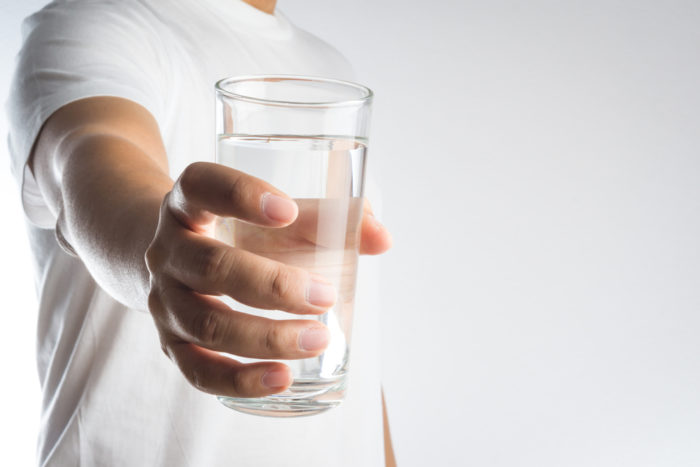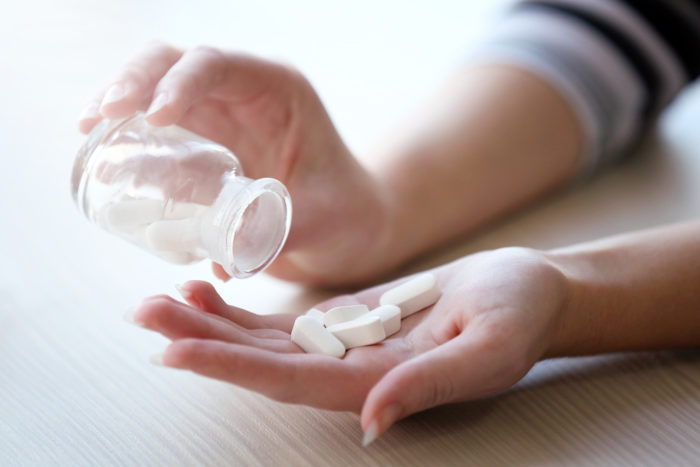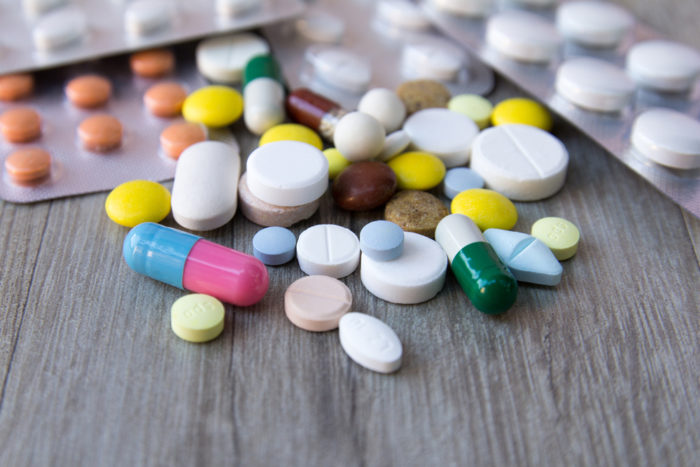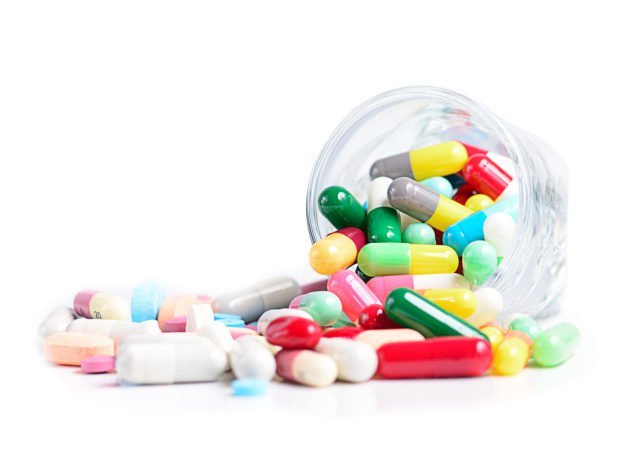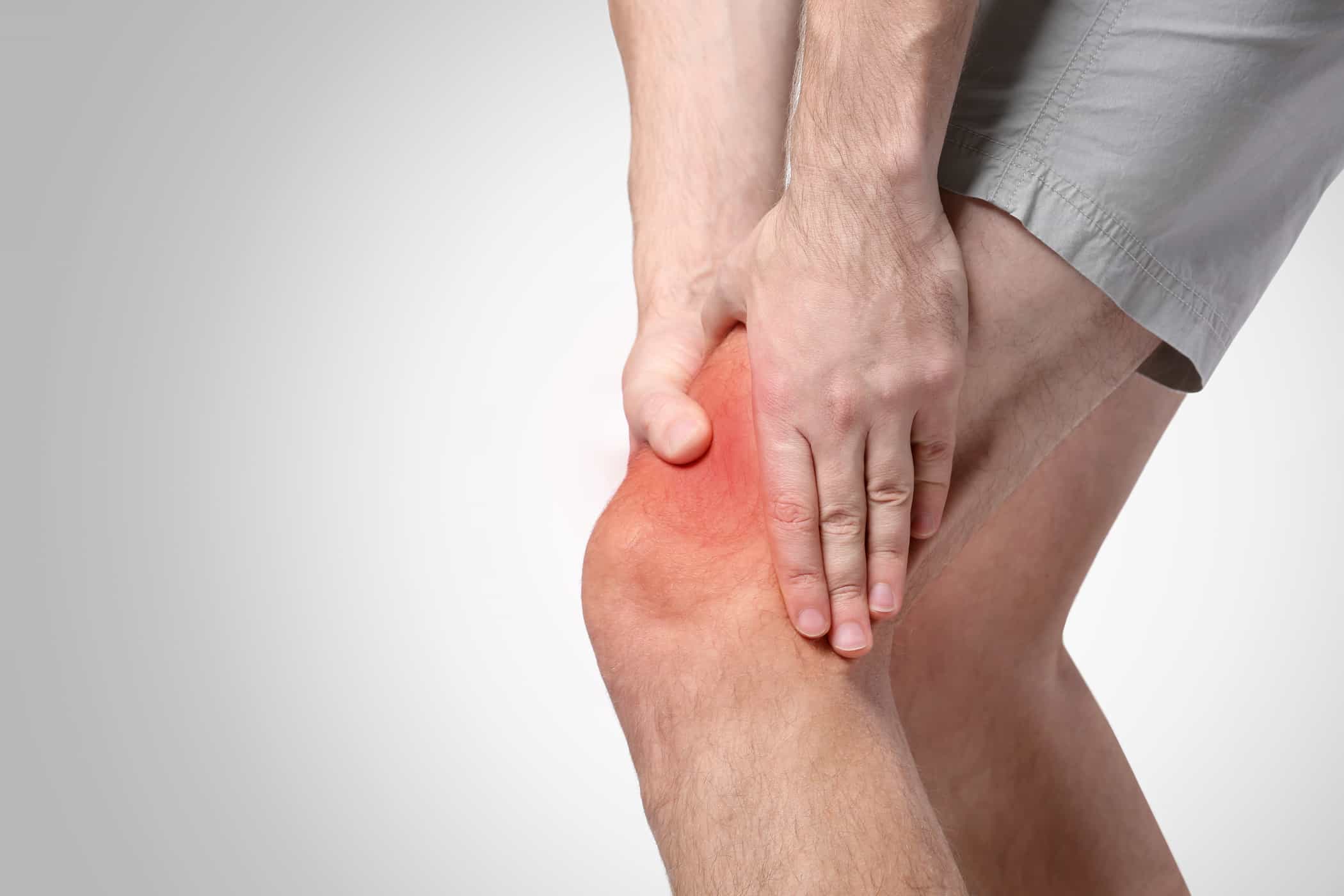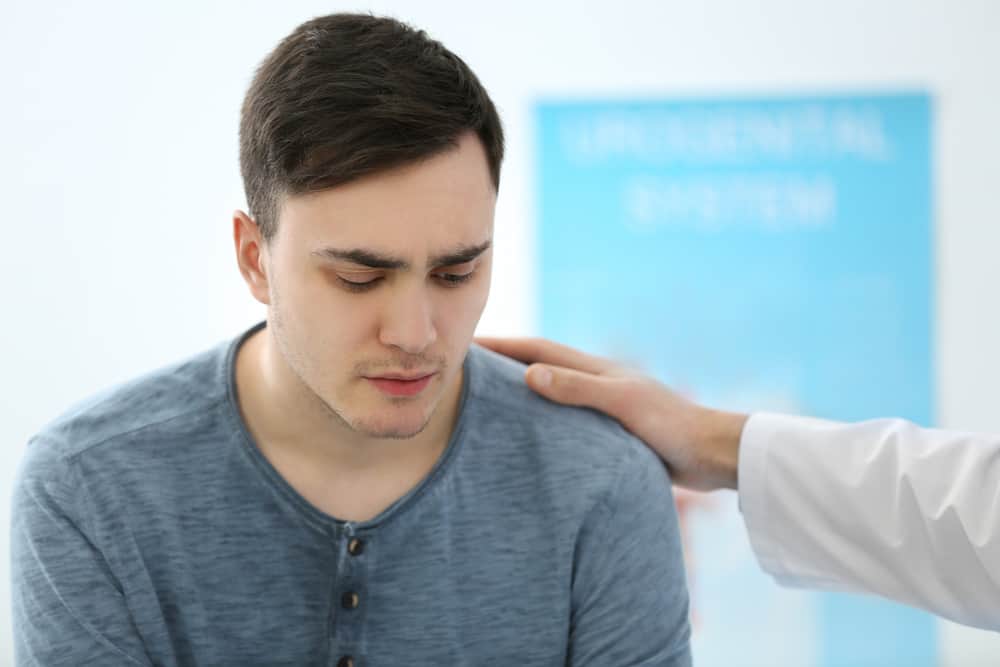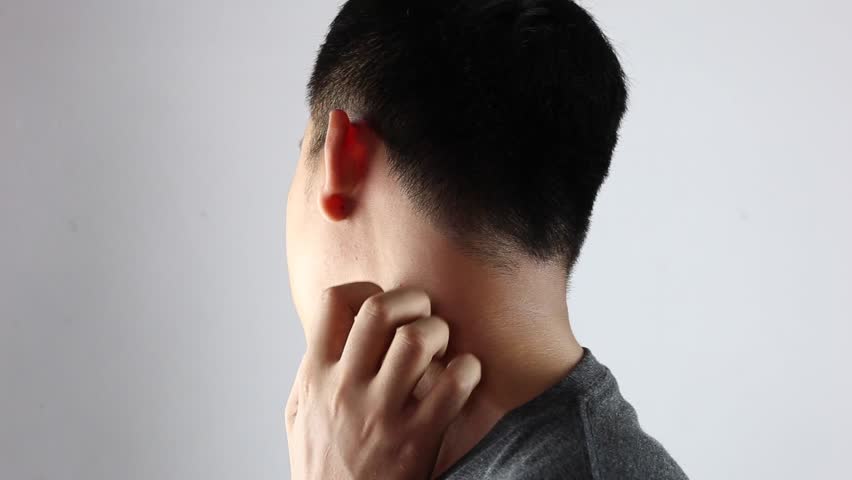Contents:
- Medical Video: Irritable Bowel Syndrome | IBS | Nucleus Health
- The most common cause of diarrhea
- 1. Bacterial infections
- 2. Virus infection
- 3. Travel to a certain place
- 4. Certain medicines
- 5. Food intolerance
- 6. Food poisoning
- 7. Certain medical conditions
- The choice of diarrhea medication that you can try at home
- 1. Drink lots of fluids
- 2. Avoid certain foods
- 3. Choose foods that contain probiotics
- 4. Diligently wash your hands
- Choice of diarrhea medication from a doctor
- 1. Loperamide (Imodium)
- 2. Attapulgite
- 3. Bismuth subsalicylate (Pepto-Bismol®)
- 4. Antibiotics
Medical Video: Irritable Bowel Syndrome | IBS | Nucleus Health
Everyone, regardless of age and sex, can experience diarrhea. There are many causes of diarrhea. Starting from trivial things like unhealthy lifestyles to signs of serious illness. Unfortunately, there are still many people who underestimate this one disease. Even though diarrhea that is distributed without proper treatment can last a long time and ultimately lead to serious complications.
Knowing the various causes of diarrhea can reduce your risk of getting this disease later
The most common cause of diarrhea
The causes of diarrhea are very diverse, ranging from temporary conditions to signs of chronic health conditions. The following are the most common causes of diarrhea:
1. Bacterial infections
Some bacteria likeshigella, salmonella, and escherichia colican infect your body and cause diarrhea. The bacteria that causes diarrhea usually spread through contaminated food and drink and direct contact with infected people. So, you can get infected with the bacteria that causes diarrhea when you eat foods that are treated unhygienicly by people who are sick with diarrhea.
Because the infected person may forget to wash their hands after using the toilet and then the infected person immediately handles the food, so that bacteria can move to food. Now if your immune system is down, you might be infected with this disease.
Small children may be more susceptible to being infected with bacteria that cause diarrhea because their endurance is not as strong as that of adults.
2. Virus infection
Some viral infections can cause diarrhea and vomiting, such as rotavirus and norovirus virus infections. The group of viruses is very easily transmitted from one person to another. Using eating utensils and consuming contaminated drinks and food can cause you to become infected with the virus. In fact, people who are infected and do not present any symptoms can also transmit the virus.
3. Travel to a certain place
Depending on the tourist attractions visited, around 30 to 70 percent of tourists experience diarrhea and vomiting because they consume local food or contaminated water. This is usually referred to as tourist diarrhea.
4. Certain medicines
Sometimes the use of certain drugs can cause diarrhea. One type of medication that can trigger diarrhea is antibiotics. Although antibiotics can kill bad bacteria, this drug can also kill good bacteria that protect your intestines.
In addition, blood pressure drugs, cancer drugs, and antacids can also trigger diarrhea. If you use one of these drugs and immediately experience diarrhea, immediately consult a doctor.
5. Food intolerance
Other causes of diarrhea may also be because you experience certain food intolerances. Food intolerance occurs when your body cannot digest certain types of food. This non-digestible food causes nausea, diarrhea, cramps, bloating, and so on. Usually this condition occurs within 30 minutes to two hours after you eat certain foods.
Food intolerance can be because you don't have a special enzyme that can reduce the food or because there are certain health conditions. Quite a lot of intolerance is experienced, namely lactose intolerance (natural sugar in dairy products) or gluten intolerance (natural protein in wheat and processed products).
6. Food poisoning
Diarrhea can also occur because you eat expired foods that have been contaminated by bacteria.Salmonella is a common bacterial infection that can cause diarrhea andusually develops after you consume contaminated food or water.
7. Certain medical conditions
If you experience crnonic diarrhea that does not heal and is recurrent, it could be a sign that you have certain health problems. If your diarrhea lasts more than three days, you may experience one of the conditions below:
- Irritable Bowel Syndrome (IBS).This condition is also known as irritable bowel which indicates a disturbance in your large intestine. Usually this condition is triggered by a state of stress. In addition to diarrhea, IBS is usually accompanied by other symptoms such as flatulence, spasms, constipation, abdominal cramps, and slimy stool.
- Inflammatory Bowel Disease (IBD). This term is used to describe several chronic intestinal disorders such as Crohn's disease and ulcerative colitis. Both of these conditions are characterized by inflammation of the digestive tract. Inflammation usually spreads from the digestive tract to the surrounding tissue and causes sores along the lining of the large intestine. That is why diarrhea caused by this disease can be accompanied by blood.
- Celiac disease.If you have Celiac disease, eating foods that contain gluten will trigger an immune system response to attack healthy tissue in your small intestine. Over time this condition can damage the lining of the intestine which in turn can interfere with the process of absorption of important nutrients in the body (malabsorption). As a result, you will also be more susceptible to diarrhea.
- Other diseases. Some other diseases such as diabetes, hyperthyroidism, Addison's disease, and chronic pancreatitis can also be the cause of diarrhea. If you suspect the cause of diarrhea due to this condition, immediately consult a doctor. The doctor will make a diagnosis to determine the best treatment for your condition.
The choice of diarrhea medication that you can try at home
It is important to understand that everyone may need different treatments. Some people with diarrhea may need to get hospital treatment for several days. While some other people are treated enough at home with complete rest.
But in general, there are various ways that can be done to treat this disease. You can do this by using a natural ingredient and diarrhea medication from a doctor.
Quoted from the Mayo Clinic, here are some simple and effective ways you can do to treat diarrhea. This method can be applied to children and adults.
1. Drink lots of fluids
In cases that are not too severe, the symptoms of diarrhea can improve on their own in a few days. However, for some others, the diarrhea they experience may be more severe. This causes various other problems, such as dehydration. Dehydration is caused by too much fluid coming out of the body through bowel movements that are too liquid and often during diarrhea.
Well, to overcome this, people who are sick with diarrhea are encouraged to meet their fluid needs. You should drink plenty of fluids from water, coconut water, sweet tea, broth, or ORS. But remember, ORS cannot cure dysentery, but helps treat or prevent patients from becoming dehydrated. If it is not possible to make ORS yourself at home, you can buy ORS packs at the nearest pharmacy and then dissolve them in a glass of water.
For babies under 6 months, you can continue to give exclusive breastfeeding (breast milk only) to prevent diarrhea from getting worse. The content in breast milk can inhibit the growth of germs that cause diarrhea.
If you have kidney, heart or liver disease and must limit fluids, talk to your doctor before you increase the amount of fluid you drink.
2. Avoid certain foods
As long as you have diarrhea, you should pay close attention to food intake. Eat foods that are soft, high in protein and low in fiber. Avoid foods that are difficult to digest so that the symptoms of diarrhea do not worsen. Don't forget, pay attention to your meal portions too.
In general, here are some foods you should avoid during diarrhea:
- The food is solid / hard, spicy, fatty, oily, raw, high fibrous, and lots of seasoning.
- Fruits and vegetables that contain gas.
- Alcohol and caffeine, at least 48 hours after all your diarrhea symptoms disappear.
- If you eat gum, avoid those containing sorbitol.
- Avoid consuming milk or processed products for 3 days after your diarrhea symptoms disappear. However, you can eat cheese or yogurt containing probiotics.
3. Choose foods that contain probiotics
Probiotics contain a group of living bacteria that are similar to healthy bacteria commonly found in the digestive system of the body. Probiotics can increase the number of healthy bacteria that exist to fight germs in your digestive tract. You can find this bacterium in yogurt and cheese. If needed, you can also take probiotic supplements.
4. Diligently wash your hands
When you experience diarrhea, it is important to wash your hands before and after doing activities. Especially after you go to the bathroom and before eating. Because the hand is one part of the body that is often used to come into contact with various objects. Shaking hands with others, opening the handle, or pressing the light switch are some examples of activities that involve hand touch.
Wash your hands using soap and running water until they are completely clean. Don't forget, keep your nails clean too.
Don't pass the disease on to people around you. So, make sure you maintain your personal hygiene and the environment around you.
Choice of diarrhea medication from a doctor
Apart from fulfilling fibrous foods and drinking lots of water, you can also take diarrhea medication from your doctor. Some commonly used diarrhea medications include:
1. Loperamide (Imodium)
One of the most commonly used diarrhea drugs is loperamide (Imodium). This drug works by slowing down the bowel movement to produce a denser stool texture. In addition, loperamide also prevents dehydration by reducing the amount of body fluids that come out.
Loperamide is available in capsules, chewable tablets and liquid medicines (syrup). Follow the doctor's instructions for using this medicine. If you violate the rules, you might not be able to defecate at all.
2. Attapulgite
Attapulgite is a substance contained in several diarrhea drugs. Attapulgite works to stimulate the intestines to absorb more water so that the texture of your stool will be much denser. In addition, this drug also helps relieve the symptoms of stomach ache due to diarrhea.
You can take medication for attapulgite diarrhea before or after meals, just choose one. Don't forget to keep drinking lots of water to prevent dehydration during diarrhea.
3. Bismuth subsalicylate (Pepto-Bismol®)
Bismuth subsalicylate is a diarrhea drug that works to slow the development of diarrhea-causing bacteria. This drug helps strengthen the lining of the stomach and small intestine thanks to the content of the cytoprotective agent. In addition, bismuth subsalicylates also help relieve nausea.
If your stool contains blood or mucus, don't use this medicine. It is important to note that if your condition does not improve in more than two days, or even worsens after taking diarrhea medication, immediately consult a doctor.
4. Antibiotics
As mentioned above, diarrhea is generally caused by bacterial, viral, or parasitic infections that attack the digestive tract. This is why doctors often prescribe antibiotics as one of the drugs for diarrhea.
However, giving antibiotics as a diarrhea drug is usually done after the doctor has done a laboratory test by taking a patient's stool sample. When doctors know that the cause of diarrhea experienced by patients is a bacterial infection, then the doctor will prescribe antibiotics to cure the disease. The reason is, antibiotics are anti-bacterial, so viral infections cannot be treated by antibiotics.
Antibiotics are most effective when the amount of drug in the body is maintained at a consistent level. So, take antibiotic medication that your doctor prescribes with approximately the same distance.
Continue to use antibiotics until they run out, even though the symptoms of diarrhea disappear after a few days. Stopping taking medication too early can actually make the bacteria that causes diarrhea to grow, which results in recurrence of infection. Tell your doctor if your symptoms do not go away or get worse.





